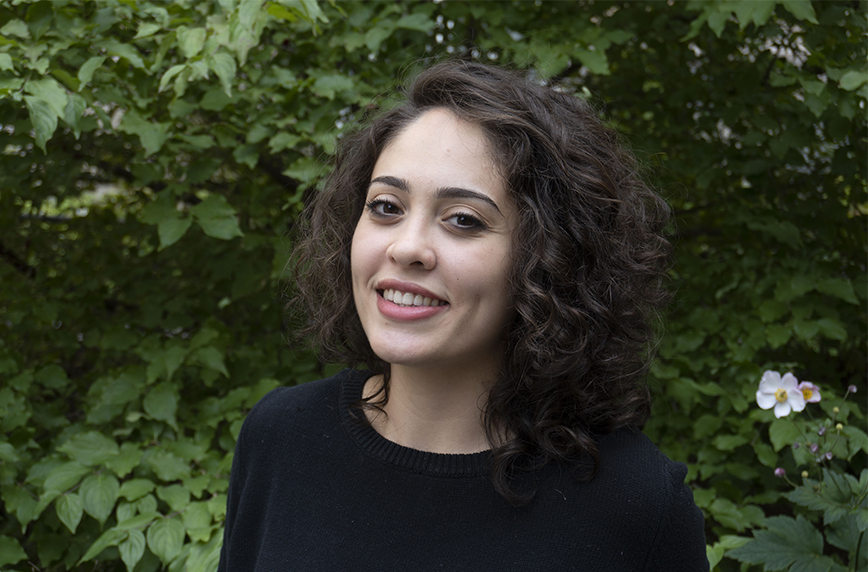Martina
Martina is from Italy and is a graduate in Aeronautical Engineering at the University of Glasgow (Glasgow, Scotland) with a strong interest in Aerodynamics. Her other hobbies are singing, backpacking and skincare.

Why did you choose this master's programme at KTH?
During my first two years at the University of Glasgow, I discovered a growing interest in fluid mechanics. I realised a master's in Aerospace or Aeronautical engineering would not give me the possibility to choose enough courses in this field, as there are many other compulsory courses that one needs to take at first (e.g. Aircraft structure or aerospace systems). I started looking for a more specialised master's. Still, across Europe, there are very few well-known universities that offer an entire MSc focused on fluid mechanics only, KTH being one of the most renowned ones. That is why I applied in the first place.
What are the best aspects of your programme?
The programme is strongly based on theoretical notions, derivations and understanding of the subject. I extremely enjoy this type of structure as I firmly believe that a good and strong theoretical base is key to a thorough understanding of the topic and a perfect stepping stone to start new research. There are also many laboratory exercises that aim to help the student gain an even better and visual understanding of most of the main topics covered in the courses.
What are some of your favourite courses so far?
So far, some of my favourite courses are surely the Turbulence course (SG2218) offered in Period 2, by Dr Erik Lindborg, and the Compressible Flow course (SG2215) offered in Period 4 by Dr Jens Fransson. This is just to name a few, and I can surely say that I disliked not even one course so far in the Fluids track.
How do studies at KTH differ from your previous studies?
There are many differences between KTH and my home university. To name a few, I had never done an oral exam before coming to KTH, and it was not possible to retake an exam if I was not satisfied with the grade. The semester structure was also very different. At the UofG, we had two exam's sessions, one in December and one in late April, when we took all our exams. The academic year was split into two semesters going from September to December and from January to May. At KTH, this works differently. Each semester is divided into two periods with exams at the end of each period. The four periods are approximately from August to October, from October to January, from January to March, and from March to June.
What do you want to do after graduating?
The general idea is to travel as much as possible and as long as I do not have any essential strings attached. The next step would be a PhD somewhere in Europe, then probably a PostDoc somewhere else and so on. My final goal is to become a researcher and eventually a Professor in Fluid Mechanics. Who knows, maybe I will be back in Stockholm as one of the KTH professors at some point.
